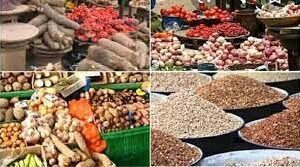Experts in Agricultural sector have decried over low knowledge of climate change and pest resilient crops among Nigerian Local Farmers.
They raised the concern at the inaugural meeting of the Technical Working Group on Germplasm Users’ Engagement Activity, and sensitisation of farmers in Niger State, organised by the National Centre for Genetic Resources and Biotechnology (NACGRAB) in collaboration with the Global Crop Diversity Trust, held at the National Agricultural Mechanisation Development Agency, Bida, NIger State.
The Head of Department, Extension and Linkages, National Centre for Genetic Resources and Biotechnology (NACGRAB), Ibadan, Dr. Olabisi Alamu said farmers spend millions of naira annually in cultivating crops that are not climate and pest resilient especially in low rain fall states like Niger and Kano.
He said sensitisation of farmers against next raining season was critical to avert the past experience where farmers cultivate crops with low yields due to climate change, so as to also address the issue of food insecurity.
He said the campaigns which targets small holder farmers in NIger, Kano, and Oyo States in the first phase was aimed at increasing their knowledge on crops that had potential to resist climate change and pest beginning with cowpea, okra, yam and sorghum among others, and to prepare them for quality crop production next raining season.
Dr Alamu explained that the Climate change affects crops the same way it affects human beings and animals, noting that germplasm was critical to food security in Nigeria.
He said NACGRAB had over 600 variety of Germplasm to release for Farmers’ use in Nigeria, explaining that the responsibility of the Technical Working Group was to facilitate the use of germplasm collections at large scale among others.
Other speakers also called for proactive measures to assist farmers in understanding the variety of crops with relevance for climate change resilience in the selected three states in Nigeria.




